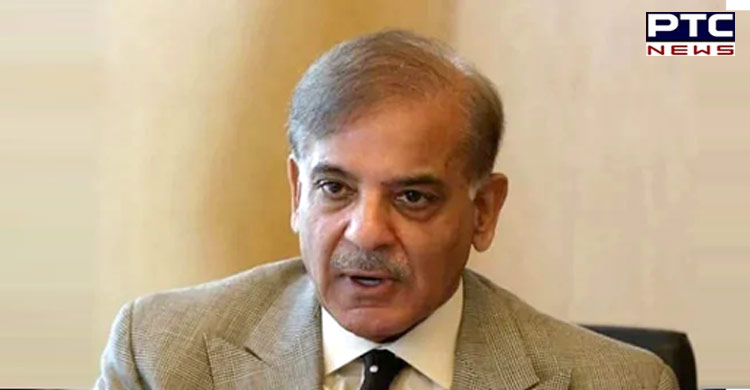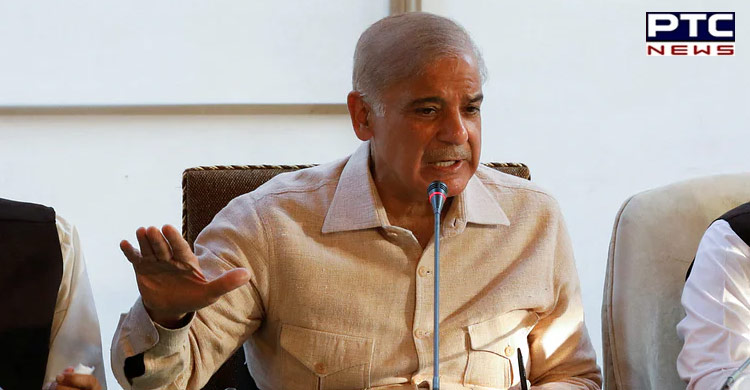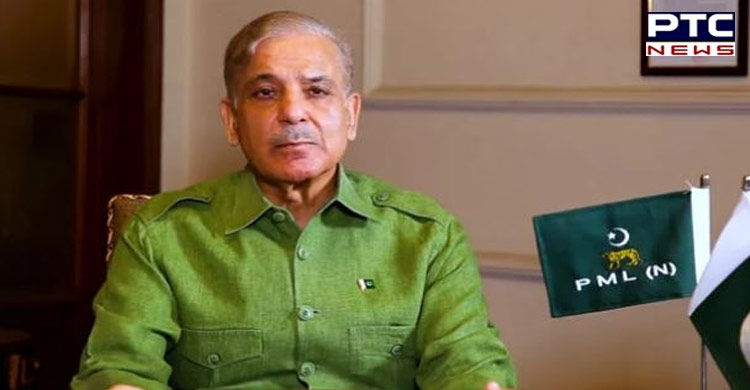

Shehbaz Sharif becomes 23rd Prime Minister of Pakistan
Islamabad, April 11: Mian Muhammad Shehbaz Sharif, President of Pakistan Muslim League-Nawaz (PML-N) and former leader of Opposition, was elected the 23rd Prime Minister of Pakistan by the National Assembly of the country on Monday.
 Also Read | Amid economic crisis in Sri Lanka, rations from India reach Colombo
"Mian Mohammad Shehbaz Sharif has secured 174 votes," announced PML-N leader Ayaz Sadiq, who was chairing the session after the resignation of Deputy Speaker Qasim Suri ahead of the vote. Ahead of the voting, Pakistan Tehreek-e-Insaf (PTI) legislators resigned en masse from the National Assembly and walked out of the National Assembly after a speech by former Foreign Minister and PTI candidate for prime ministerial post, Shah Mahmood Qureshi.
Also Read | Amid economic crisis in Sri Lanka, rations from India reach Colombo
"Mian Mohammad Shehbaz Sharif has secured 174 votes," announced PML-N leader Ayaz Sadiq, who was chairing the session after the resignation of Deputy Speaker Qasim Suri ahead of the vote. Ahead of the voting, Pakistan Tehreek-e-Insaf (PTI) legislators resigned en masse from the National Assembly and walked out of the National Assembly after a speech by former Foreign Minister and PTI candidate for prime ministerial post, Shah Mahmood Qureshi.
 Earlier, former Prime Minister Imran Khan had resigned from the membership of the House after holding a meeting with his parliamentary party delegation.
The younger brother of former Prime Minister Nawaz Sharif was set to grab the top post after former Prime Minister Imran Khan-led Pakistan Tehreek-e-Insaf (PTI) government was ousted from power following the no-confidence motion against the regime.
The voting on the no-confidence motion had resulted in the Imran Khan-led government losing with 174 votes in favour of the no-confidence motion.
Sharif's candidature as the Opposition's choice for the Prime Ministership was revealed by Pakistan Peoples Party (PPP) Chairman Bilawal Bhutto Zardari during a joint press conference of the opposition parties on March 30.
Earlier, former Prime Minister Imran Khan had resigned from the membership of the House after holding a meeting with his parliamentary party delegation.
The younger brother of former Prime Minister Nawaz Sharif was set to grab the top post after former Prime Minister Imran Khan-led Pakistan Tehreek-e-Insaf (PTI) government was ousted from power following the no-confidence motion against the regime.
The voting on the no-confidence motion had resulted in the Imran Khan-led government losing with 174 votes in favour of the no-confidence motion.
Sharif's candidature as the Opposition's choice for the Prime Ministership was revealed by Pakistan Peoples Party (PPP) Chairman Bilawal Bhutto Zardari during a joint press conference of the opposition parties on March 30.
 He was elected as the Prime Minister in the same National Assembly session which saw the ouster of Imran Khan, in accordance with the order of the Pakistan Supreme Court.
Pakistan's Supreme Court in a historic judgement on Thursday had called for the convening of the session of the National Assembly "not later than 10:30 AM on Saturday" after setting aside the April 3 ruling of the Deputy Speaker Qasim Khan Suri against the no-confidence motion on "Constitutional grounds".
Declaring the ruling of the Deputy Speaker "to be contrary to the Constitution and the law and of no legal effect", the Court set aside all the subsequent steps taken, including the dissolution of the National Assembly, while also restoring Prime Minister Imran Khan and all the Federal Ministers to their respective positions as of April 3.
He was elected as the Prime Minister in the same National Assembly session which saw the ouster of Imran Khan, in accordance with the order of the Pakistan Supreme Court.
Pakistan's Supreme Court in a historic judgement on Thursday had called for the convening of the session of the National Assembly "not later than 10:30 AM on Saturday" after setting aside the April 3 ruling of the Deputy Speaker Qasim Khan Suri against the no-confidence motion on "Constitutional grounds".
Declaring the ruling of the Deputy Speaker "to be contrary to the Constitution and the law and of no legal effect", the Court set aside all the subsequent steps taken, including the dissolution of the National Assembly, while also restoring Prime Minister Imran Khan and all the Federal Ministers to their respective positions as of April 3.
 The court also fixed the Saturday session with the conditions that the session cannot be prorogued unless the motion is voted upon, and in case Imran Khan loses the no-trust vote, the next PM had to be elected in the same session.
Also Read | Imran Khan loses no-trust vote, ousted as Pakistan PM
-PTC News
The court also fixed the Saturday session with the conditions that the session cannot be prorogued unless the motion is voted upon, and in case Imran Khan loses the no-trust vote, the next PM had to be elected in the same session.
Also Read | Imran Khan loses no-trust vote, ousted as Pakistan PM
-PTC News
